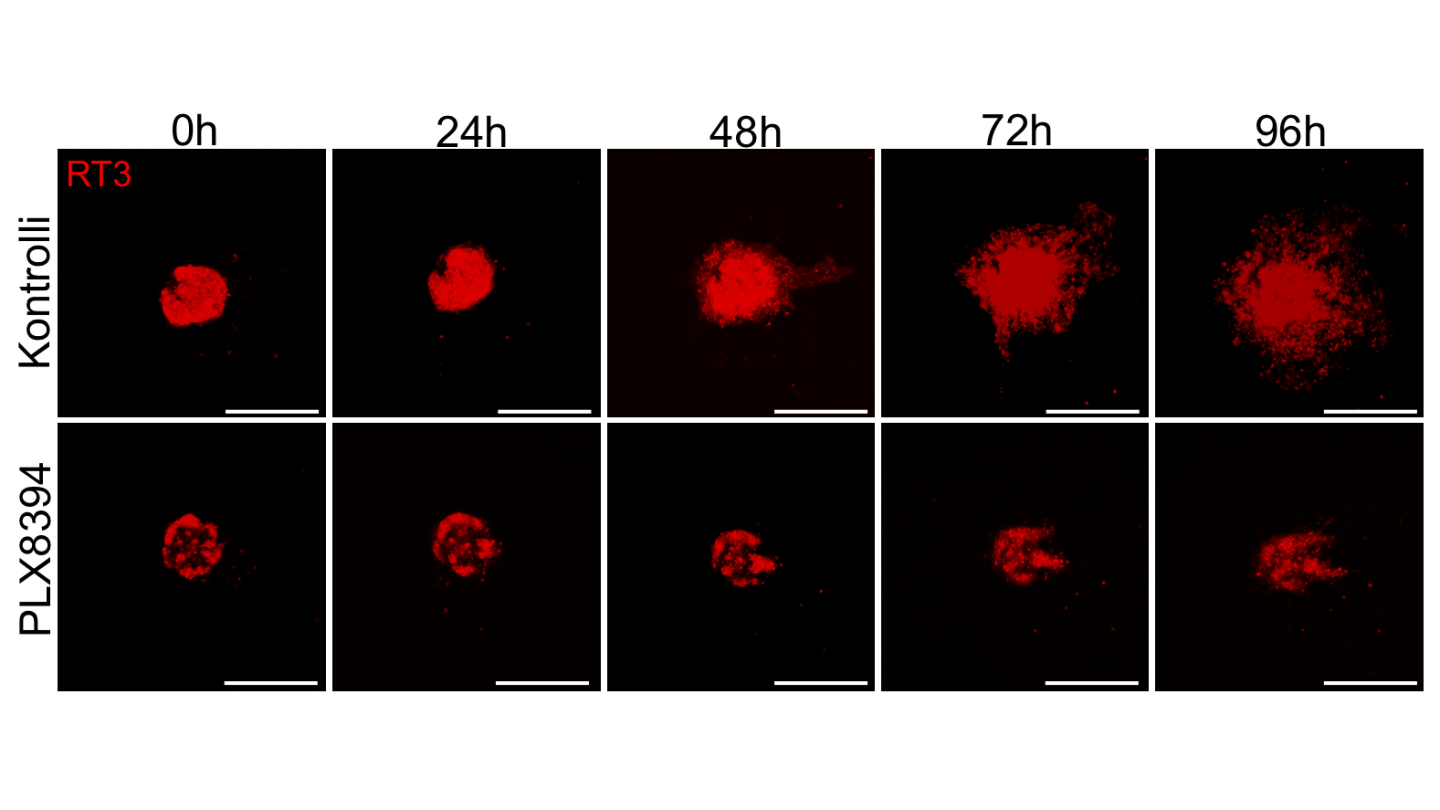Cutaneous squamous cell carcinoma (cSCC), also known as the squamous cell carcinoma of the skin, is the most common form of metastatic skin cancer. The incidence of cSCC is increasing worldwide with millions of new cases diagnosed each year. The prognosis of metastatic cSCC is poor as there are currently no effective targeted treatments available. New study conducted at the University of Turku, Finland, shows that plixorafenib, a new drug developed for treating melanoma and lung cancer, can also stop the progression of cutaneous squamous cell carcinoma.
Cancer cells can contain numerous mutations which is why they divide much faster than healthy human cells. The accelerated growth is often caused by the simultaneous activation of several signalling pathways. Many of the current therapies have been developed to inhibit only a single cancer mutation or signalling pathway, even though blocking several pathways might be a more efficient way to obstruct cancer growth.
The research groups of Professor of Biochemistry Jyrki Heino and Professor of Dermatology Veli-Matti Kähäri at the University of Turku, Finland, discovered a new target for a new drug called plixorafenib (also called PLX8394) as they observed that it simultaneously inhibits the activity of several key pathways in cSCC.
“Plixorafenib was originally developed to treat melanoma and lung cancer caused by a specific mutation and it is currently in phase 2 clinical trials for these two cancers. However, we noticed that this new drug targets multiple signalling pathways in cutaneous squamous cell carcinoma. This can be achieved with doses that seem to have no significant side effects,” says Heino.
New target proven in experimental models
The first author of the article, Senior Research Fellow Elina Siljamäki used 3D cell culture models that mimicked cutaneous squamous cell carcinoma tumours in laboratory conditions.
“In our earlier studies, we have observed that two signalling proteins in the cell, transforming growth factor-β (TGF-β) and Ras proto-oncoprotein, play a key role in the spread of cSCC. In this study, we showed that plixorafenib, which was developed to inhibit the Ras signalling pathway, also blocked the activation of the TGF-b pathway and the growth of human cutaneous squamous cell carcinoma in mouse models,” explains Siljamäki.
The discovery is significant as it shows that a single drug can inhibit several different cancer-causing proteins or overly active signalling pathways and therefore slow down the spread of cancer.
In addition, the study showed that drugs that have progressed to clinical trials can have a broader set of targets and therefore be used more widely. As the safety of the drug has already been proven, it can be introduced more quickly to treat new patients.
“Our results show that plixorafenib is a very promising candidate for a clinical trial for treating local or metastatic cutaneous squamous cell carcinoma,” says Kähäri.
The research was funded by the Sigrid Jusélius Foundation, Jane and Aatos Erkko Foundation, and Cancer Foundation Finland. The study was conducted in collaboration with the InFLAMES Research Flagship and it was published in the Oncogene journal.
InFLAMES Flagship is a joint initiative of the University of Turku and Åbo Akademi University, Finland. The goal of the Flagship is to integrate the immunological and immunology-related research activities to develop and exploit new diagnostic and therapeutic tools for personalised medicine. InFLAMES also develops diagnostics so that targeted therapies can be designed for individual patients. InFLAMES is part of Research Council of Finland’s Flagship Programme.







